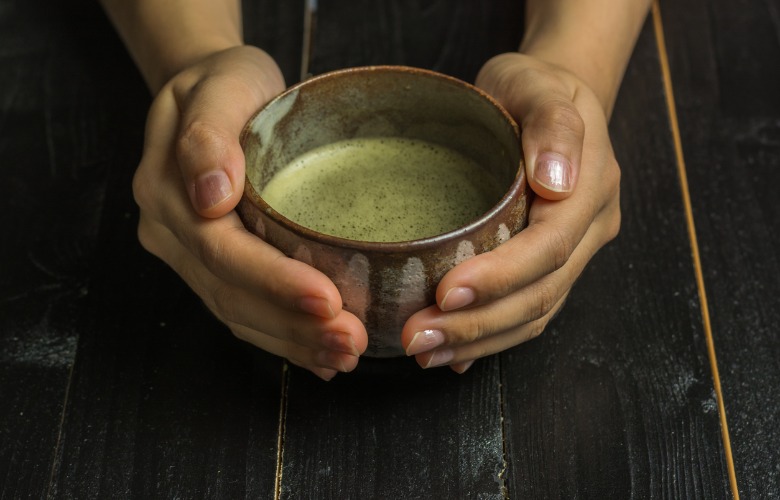The Many Health Benefits of Drinking Tea
The History of Tea
Tea has a long and rich history that spans thousands of years. The short story of tea originated in China in 2737 BC. According to legend, the Chinese emperor Shen Nung served boiled drinking water while sitting beneath a tree (Camellia sinensis). Some of the leaves from the tree fell into his water; since Shen Nung was an herbalist, he taste-tested the new drink, and that drink became the first tea. Of course, this may not have been the very first cup of tea, but perhaps the first documented one. Tea vessels have been found in tombs, entire books were written devoted to tea, and love for tea spread from China to Japan – resulting in the Tea Ceremony and tea being a crucial part of Japanese culture.
Tea drinking eventually found its way west and became an essential part of British culture. An interesting fact, tea bags were invented in America in the early twentieth century. Tea drinking in America has always competed with coffee drinking – however – the health benefits tea offers are undeniable.
What are true tea and herbal tea?
True tea is made from the tea plant leaves Camellia sinensis, yes, the same as in the legend! Teas made from this plant include white tea, green tea, oolong tea, pu-erh tea, and black tea. The various colors and tastes derive from the production process and not the leaves themselves.
Herbal teas are made after infusing various plants, including fruits, roots, herbs, leaves, and stems, into boiling water. Herbal teas are caffeine-free and include ginger tea, chamomile tea, and peppermint tea.

Health Benefits of Drinking Tea
We will go deeper into the health benefits for each tea, however, are just a few ways tea-drinking supports wellness:
- Supports heart health
- Boosts energy
- Decreases stress levels
- Prevents cognitive decline
- Antioxidant-rich
- Offers calming effects
- Supports weight management
- Supports normal blood sugar levels
- Supports digestion
- Supports immune health
- Helps fight certain forms of cancer
- Helps with menstrual pain
- Helps with morning sickness
Black Tea
Black tea is the most commonly consumed tea in the West – over 90% of all black tea sold. Black tea contains – caffeine, amino acids, potassium, manganese, minerals, fluoride, catechins, and polyphenols. Catechins are powerful antioxidants known for helping to support heart health and fight cancer-causing cells. Black tea also contains about 200 milligrams of flavonoids per cup, including thearubigin and theaflavin.
Black tea health benefits include:
- Supports gut health
- Supports heart health
- Improves metabolism
- Decreases inflammation
- Anti-cancer effects
- Boosts energy
- Boosts alertness
- Supports immune function
- Supports oral health
The most popular black teas are Darjeeling, Ceylon, Assam, Scottish, English, Irish breakfast, Dian Hong Cha, also known as Yunnan red, earl gray, and lapsang souchong.

Green Tea
Green tea comes from Camellia sinensis leaves and originates from China. A book written by Lu Yu in 600-900 AD during the Tang Dynasty, contains the first known monograph about tea in the world. In 1211, The Book or Tea or The Kissa Yojoki, written by a Zen priest names Elsai, discusses green tea and its form, preparation, and beneficial effect on vital organs. In particular, green tea contains an amino acid called L-theanine, which has anti-anxiety properties. L-theanine increases dopamine levels in the brain and, at the same time, decreases blood pressure. This creates a calming effect that relaxes the body and mind within approx 40 minutes after consuming green tea.
Green tea contains loads of antioxidants, including epigallocatechin gallate (EGCG). EGCG is a polyphenol that can rid the body of free radical metabolic byproducts known to damage cells. Green tea has a considerable amount of EGCG – 6 times more than black tea.
Green tea health benefits include:
- Rich in antioxidants
- Supports heart health
- Burns fat
- Eliminates brain fog
- Increases energy
- Reduces anxiety
- Skin protection
- Supports bone health
Oolong Tea
Partially fermented, oolong tea is produced by withering the leaves under the sun and oxidation. Oolong is very popular in south China and can vary widely in flavor. The Chinese term wulong or oolong was described as a tea in 1857: Miscellaneous Notes on Fujian by Shi Hongbao.
Researchers have linked drinking oolong tea and cholesterol levels; they found that people who consumed 10 oz. of oolong tea had a lower risk of having high cholesterol levels.
Oolong tea health benefits include:
Weight management
Decreases risk of certain cancers
Supports normal blood sugar levels
Supports oral health
Supports gut health
White Tea
White tea has a gentle flavor and is low in caffeine. White tea’s name originated from the white fuzz on young leaves because it is harvested at the start of the season. It is believed that white tea was first made in Imperial China during the Song dynasty (960 AD to 1280AD). However, no historical records are stating this.
White tea is made from the Camellia Sinensis plant and packed with polyphenols, an antioxidant that helps fight free radicals – similar to green tea.
White tea health benefits include:
- Weight management
- Antioxidant properties
- Supports oral health
- Lowers the risk of insulin resistance
- May protect against osteoporosis
Pu-erh Tea
Pu-erh tea is post-fermented; the tea leaves go through a microbial fermentation process and originates from the Yunnan province of China in the Eastern Han Dynasty (25-220CE). Trading of pu-erh tea was done in the markets of Pu-erh County, and that is how it got its name. The tea was prized because it would not spoil on long journeys.
Pu-erh tea health benefits include:
- Increases energy
- Supports heart health
- Cleanses
- Helps prevent cancer
- Supports bone health
- Weight management
- Stress-reducing
- Supports immune function

Herbal Teas
Not technically a true tea because it does not come from the Camellia stenosis plant, herbal teas are crafted from the leaves, fruits, bark, roots, or flowers of various plants. Traditionally used medicinally for centuries, herbal teas infuse different plants for different health effects. Here are a few of the most popular herbal teas.
Ginger tea
Ginger tea is a warming, spicy tea made from infusing dried or fresh ginger. Ginger tea has been enjoyed for over 5,000 years ago, originating in China. Ginger has many health benefits, including digestive support, anti-inflammatory properties, and pain-relieving effects.
Hibiscus tea
Hibiscus tea is an herbal tea infused with the hibiscus, a tropical flowering plant. Hibiscus tea has been enjoyed by people for centuries for medicinal benefits. Hibiscus tea is packed with antioxidants, particularly one known as anthocyanin, the same found in berries. Health benefits include supporting normal blood pressure, supports day-to-day glucose management, supports heart health, and induce menstruation. However, hibiscus tea carries a high risk when pregnant, breastfeeding, or trying to conceive.
Spearmint tea
Spearmint has been used medicinally and for culinary purposes for centuries. Spearmint tea hydrates help improve sleep, mood, and cognition function. Spearmint tea may help improve memory, digestion, and relaxation. This minty tea also is used for indigestion, nausea, and vomiting symptoms.
Red rooibos tea
Rooibos tea is traditionally made by fermenting the leaves of Aspalathus linearis. Rooibos tea is a popular tea in South Africa for centuries, and the plant was recorded there in 1772 after enjoying a locally made cup of rooibos tea. Rooibos tea is antioxidant-rich with polyphenols, including aspalathin. Some people cannot consume tannins. However, rooibos tea is very low in tannins – 4.4%. Rooibos is a good coffee alternative because it is a rich tea yet will not make you jumpy. It supports blood-sugar metabolism and may support normal heart health.
Turmeric tea
Turmeric is a spice derived from the Curcuma longa plant and has been traditionally used for thousands of years in traditional Chinese medicine and Indian Ayurvedic medicine. Curcumin or turmeric has anti-inflammatory properties. Used for culinary purposes, as a dye, and for medicinal reasons, turmeric offers many health benefits, including reducing inflammation, healthier skin, intestinal support function, improves cognitive function, weight loss, healthy cellular activity, and improve mood. Turmeric tea is a pleasant way to consume this yellow spice.
Chamomile tea
Chamomile tea is a well-known gentle tea that supports relaxation and sleep. Chamomile is used for digestion. It has anti-spasmodic properties because it contains compounds called cesquiterpene lactones. Chamomile tea also supports normal blood sugar when sipped regularly.

Jemile earned a degree in Food Studies and Writing and has worked for almost 23 years in the medical and health industries. She has been a digital marketing consultant for Acupuncture Atlanta since 2011 as the social media manager and content manager. Writing has been a childhood dream for Jemile and writing daily for clients in the health, wellness, food, and art industries have been phenomenal. Jemile is originally from Brooklyn, NY, and lives in the Hudson Valley, NY. She lives with her husband, two daughters, her dog, and two fish. You can contact Jemile via Linkedin, her mom blog, or her website, lunaroseconsulting.com



